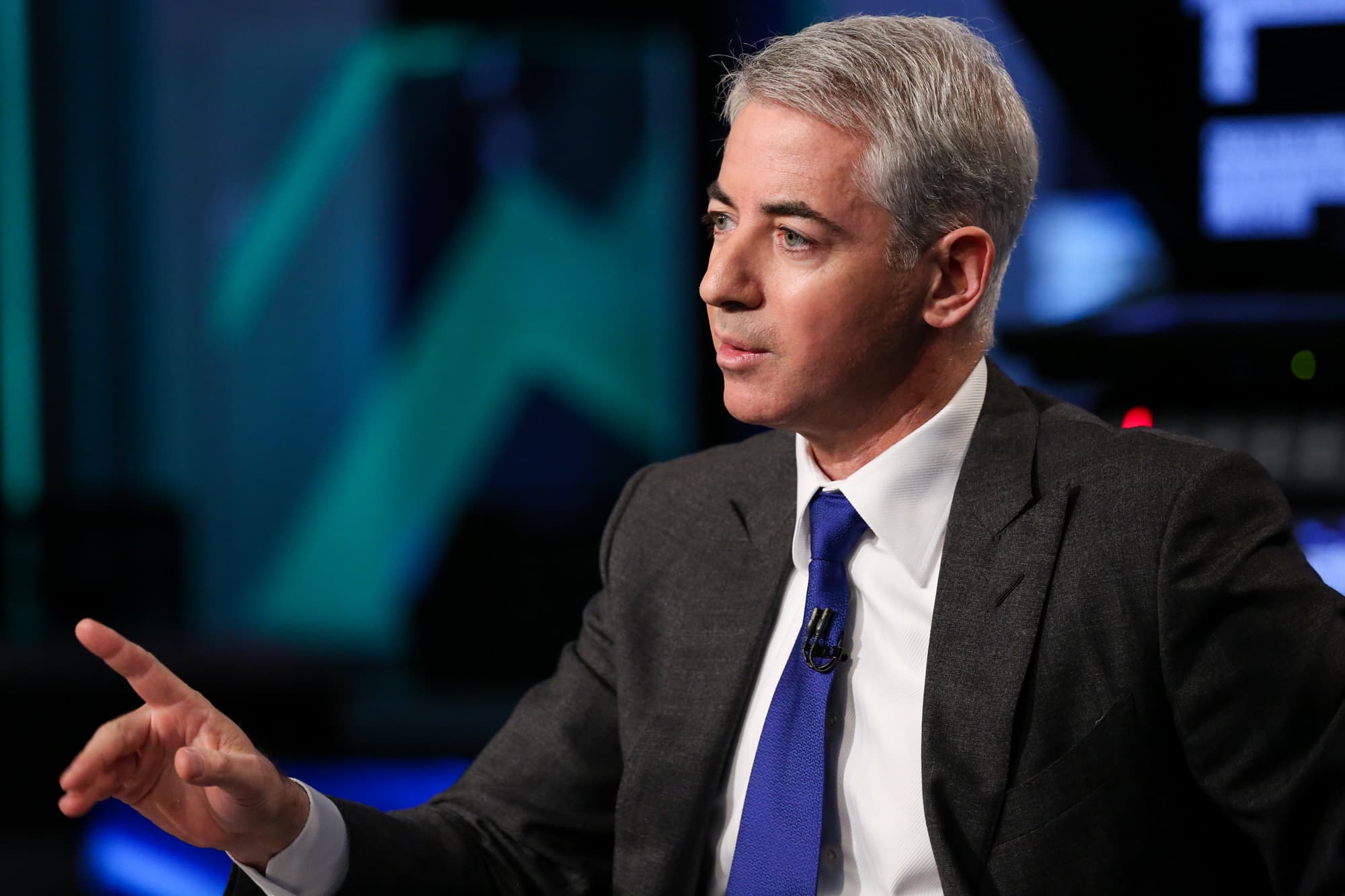
Bill Ackman, founder and CEO of Pershing Square Capital Management.
Adam Jeffery | CNBC
Billionaire hedge fund manager Bill Ackman has warned that World War III has “likely started already” amid Russia’s invasion of Ukraine.
“In January 2020, I had nightmares about the potential for a pandemic, but everyone seemed to think I was crazy. I am having similar nightmares now,” Ackman said via Twitter on Sunday.
Back in early 2020, when less than 7,000 coronavirus cases had been confirmed in the U.S., Ackman — who is CEO of Pershing Square Capital — called for a 30-day national lockdown and warned that “hell is coming” in an interview with CNBC.
Ackman later defended his comments after his fund announced shortly thereafter that it had made more than $2 billion on bets against the markets.
On Sunday, Ackman said that “WWIII has likely started already, but we have been slow to recognize it,” although he added that there was “much more we can do before we enter a hot war with Russia.”
The U.S. “could stop the absurdity of buying oil from Russia and funding the war, [and] Europe could follow suit once demand for gas declines in the Spring,” Ackman said.
Ukrainian President Volodymyr Zelenskyy on Monday issued a fresh call for an international boycott of Russian oil, with EU officials set to discuss proposals for ending the bloc’s reliance on Russian fossil fuels on Tuesday.
International benchmark Brent crude futures and U.S. WTI crude futures both soared to 13-year highs on Monday as investors considered the prospect of a Russian oil embargo.
West has ‘already provoked Putin’
Supplying Ukraine with the West’s best weaponry, intelligence and drones would allow NATO members to assist Ukraine without putting troops on the ground, Ackman said.
“The Ukrainians with the right weapons and resources have proven that they have what it takes to win the war, unless and until Putin goes nuclear,” he said. “Our reason for not doing more appears to be our fear of provoking Putin.”
But he said the West has already provoked Putin by giving the Ukrainians the weapons that were enabling them to thwart Russia’s advances.
A slew of countries all over the world has supplied weapons and funding to Ukraine to help the country defend itself from invading Russian forces. U.S. President Joe Biden’s administration has asked Congress to approve billions of dollars worth of funding for Ukraine since Russia launched its attack on Feb. 24.
But Ackman argued that NATO’s reluctance to intervene due to the nuclear threat posed by Russia was a poor strategic move.
“What then do we do when [Putin] wants more?” Ackman asked. “The nuclear threat is no different when he takes his next country, whether it is part of NATO or not, and by then we are strategically worse off.”
Last week, Putin put Russia’s nuclear deterrence forces on high alert, saying it was a defensive response to Western condemnation of his invasion of Ukraine, and warning that any country that tried to interfere in Ukraine would suffer consequences unseen before in history.
But Ackman said on Sunday that Putin’s aspirations had grown because “we did nothing to stop him” during Russia’s previous invasion campaigns.
Russian forces invaded neighboring Georgia in 2008, a move that saw a “remarkably muted” international response and gave Moscow “an informal invitation for further acts of aggression in Russia’s traditional sphere of influence,” according to the Atlantic Council. In 2014, Russia invaded and annexed Crimea, a peninsula in southern Ukraine.
According to Ackman, “we are in the early innings of Putin’s global aspirations.”
“With each ‘victory,’ he is emboldened to take more,” he said. “He is testing us, and we are failing the test each time.”
Biden, NATO Chief Jens Stoltenberg and U.K. Prime Minister Boris Johnson have all ruled out putting troops on the ground or enforcing a no-fly zone above Ukraine, arguing that either move would lead to an escalation in the conflict and further human suffering.
However, Biden has said the U.S. and its allies would defend “every inch of territory of NATO countries with the full force of our collective power.”
“By setting a hard line based only on NATO membership, doesn’t this give Putin carte blanche to invade and subjugate Sweden, Finland, Cyprus, Ireland, Austria, Malta, and Switzerland, and the rest of the former Soviet Union?” Ackman questioned on Sunday.
China’s role
Speculating that the conflict in Ukraine was “only going to get worse,” Ackman said the only way to deter Russia from attacking more countries was for the West to use every economic sanction it had available, and give the Ukrainians every weapon it needed to defend itself.
If sanctions failed to have an impact on Putin’s actions, Ackman added, NATO should re-consider enforcing a no-fly zone over Ukraine.
Ultimately, though, Ackman argued that the key to ending the crisis in Ukraine sat with China.
“The only optimistic way I can see out of this war is for China to step in and broker a real ceasefire and a settlement,” he said. “In the settlement, the Ukrainians could agree that they will never join NATO. Russia, in turn, can withdraw and the sanctions can be reversed.”
“Putin respects and likely fears China,” Ackman added. “China can elevate itself on the world stage by helping to resolve this crisis. Time is running short before many more 18-month-old children die.”
China, an economic and strategic ally of Moscow, has not imposed any sanctions on Russia or called its attack on Ukraine an invasion. Beijing has, however, called for diplomacy and an end to the hostilities in Ukraine.
Speaking to CNBC’s “Squawk Box Asia” on Monday, economist Stephen Roach said China “is holding the trump card” in the pursuit of a peace deal between Russia and Ukraine.
“There’s only one person in the world, I think, who has leverage over Vladimir Putin — and that’s [Chinese President] Xi Jinping,” Roach said.




